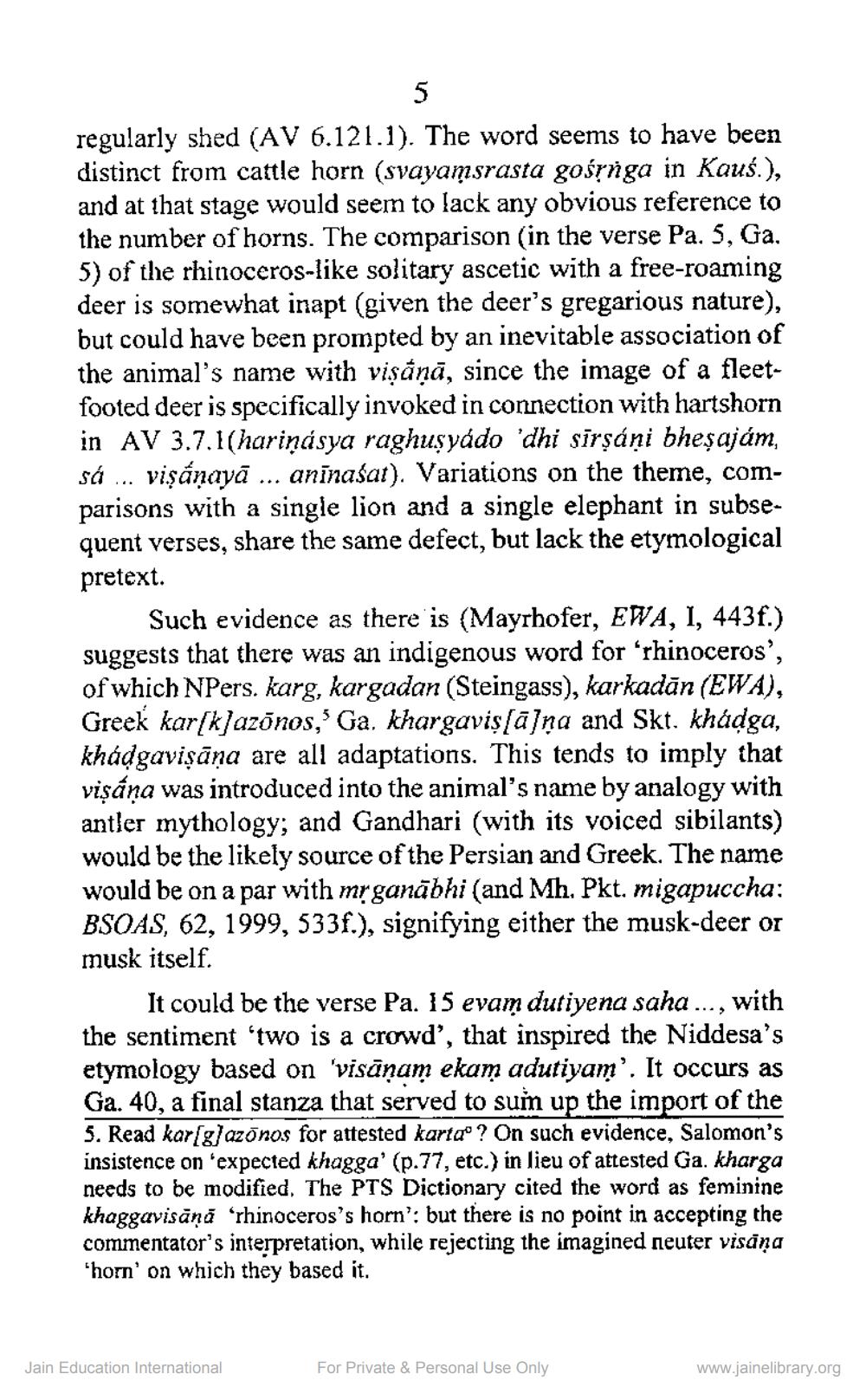Book Title: Gandhari Prakrit Version of Rhinoceros Sutra Author(s): J C Wright Publisher: ZZ_Anusandhan View full book textPage 5
________________ 5 regularly shed (AV 6.121.1). The word seems to have been distinct from cattle horn (svayamsrasta gośṛnga in Kauś.), and at that stage would seem to lack any obvious reference to the number of horns. The comparison (in the verse Pa. 5, Ga. 5) of the rhinoceros-like solitary ascetic with a free-roaming deer is somewhat inapt (given the deer's gregarious nature), but could have been prompted by an inevitable association of the animal's name with viṣaṇā, since the image of a fleetfooted deer is specifically invoked in connection with hartshorn in AV 3.7.1(hariņásya raghuṣyádo 'dhi sīrṣaṇi bheṣajám, sá... viṣaṇayā... anīnasat). Variations on the theme, comparisons with a single lion and a single elephant in subsequent verses, share the same defect, but lack the etymological pretext. Such evidence as there is (Mayrhofer, EWA, I, 443f.) suggests that there was an indigenous word for 'rhinoceros', of which NPers. karg, kargadan (Steingass), karkadān (EWA), Greek kar[k]azōnos,” Ga. khargaviṣ[ā]ṇa and Skt. kháḍga, kháḍgaviṣāṇa are all adaptations. This tends to imply that viṣaṇa was introduced into the animal's name by analogy with antler mythology; and Gandhari (with its voiced sibilants) would be the likely source of the Persian and Greek. The name would be on a par with mrganābhi (and Mh. Pkt. migapuccha: BSOAS, 62, 1999, 533f.), signifying either the musk-deer or musk itself. It could be the verse Pa. 15 evam dutiyena saha ..., with the sentiment 'two is a crowd', that inspired the Niddesa's etymology based on 'visāṇam ekam adutiyam'. It occurs as Ga. 40, a final stanza that served to sum up the import of the 5. Read kar[g]azonos for attested karta? On such evidence, Salomon's insistence on 'expected khagga' (p.77, etc.) in lieu of attested Ga. kharga needs to be modified. The PTS Dictionary cited the word as feminine khaggavisāṇā rhinoceros's horn': but there is no point in accepting the commentator's interpretation, while rejecting the imagined neuter visāṇa 'horn' on which they based it. Jain Education International For Private & Personal Use Only www.jainelibrary.orgPage Navigation
1 ... 3 4 5 6 7 8 9 10 11 12 13 14 15
